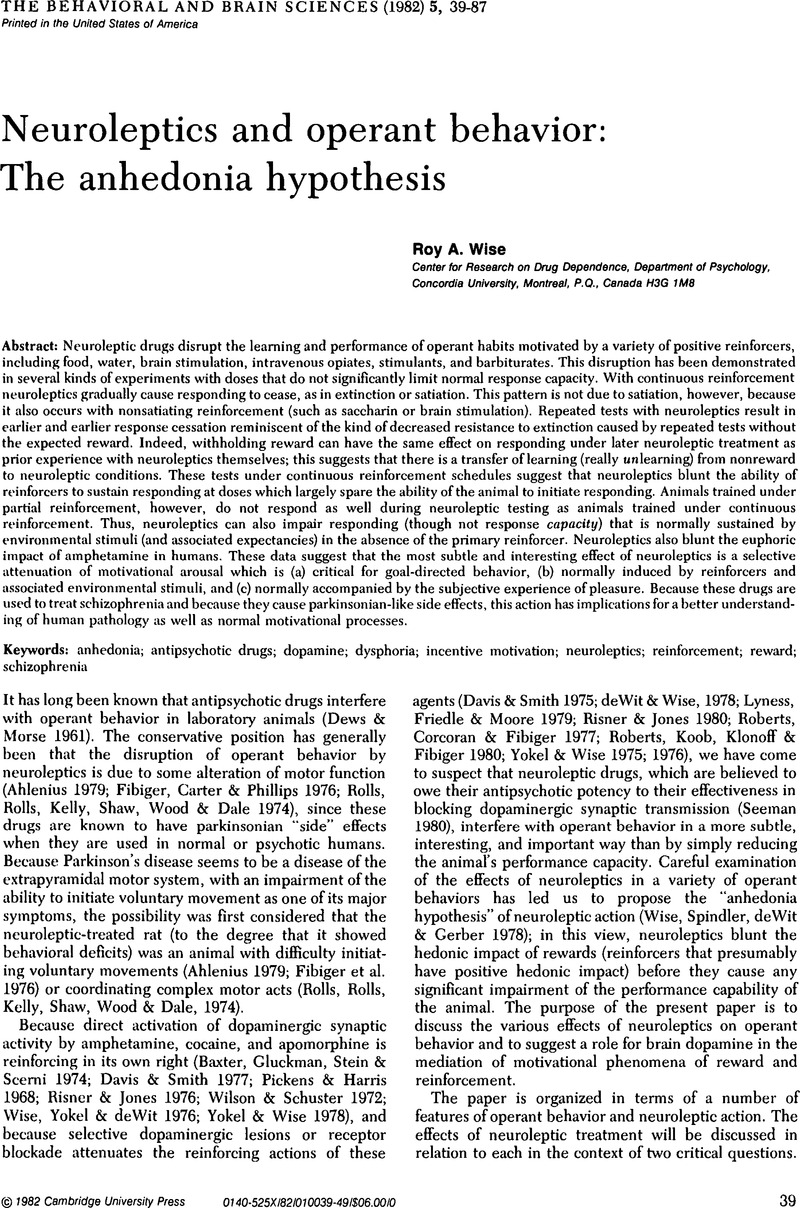Crossref Citations
This article has been cited by the following publications. This list is generated based on data provided by Crossref.
Liebman, Jeffrey M.
1983.
Discriminating between reward and performance: A critical review of intracranial self-stimulation methodology.
Neuroscience & Biobehavioral Reviews,
Vol. 7,
Issue. 1,
p.
45.
Greenshaw, A. J.
1985.
Dopamine and circling, or décalage?.
Behavioral and Brain Sciences,
Vol. 8,
Issue. 1,
p.
175.
Kostarczyk, Ewa
1985.
The role of arousal in hedonic evaluations.
Behavioral and Brain Sciences,
Vol. 8,
Issue. 1,
p.
177.
Crow, T. J.
1985.
The anhedonia hypothesis for neuroleptics and operant behaviour.
Behavioral and Brain Sciences,
Vol. 8,
Issue. 1,
p.
174.
Kornetsky, Conan
1985.
Neuroleptic drugs may attenuate pleasure in the operant chamber, but in the schizophrenic's head they may simply reduce motivational arousal.
Behavioral and Brain Sciences,
Vol. 8,
Issue. 1,
p.
176.
Fouriezos, George
1985.
Sedation-induced jumping?.
Behavioral and Brain Sciences,
Vol. 8,
Issue. 1,
p.
174.
Wise, Roy A.
1985.
The anhedonia hypothesis: Mark III.
Behavioral and Brain Sciences,
Vol. 8,
Issue. 1,
p.
178.
Ahlenius, Sven
1985.
A functional consideration of anatomical connections between the basal ganglia and the thalamus suggests that antipsychotic drugs inhibit the initiation of movement.
Behavioral and Brain Sciences,
Vol. 8,
Issue. 1,
p.
173.
Schallert, Timothy
1985.
Brain stimulation and catecholaminergic drugs: A focus on self-selected response durations versus interresponse intervals.
Behavioral and Brain Sciences,
Vol. 8,
Issue. 1,
p.
178.
Wise, Roy A.
2008.
Dopamine and reward: The anhedonia hypothesis 30 years on.
Neurotoxicity Research,
Vol. 14,
Issue. 2-3,
p.
169.



